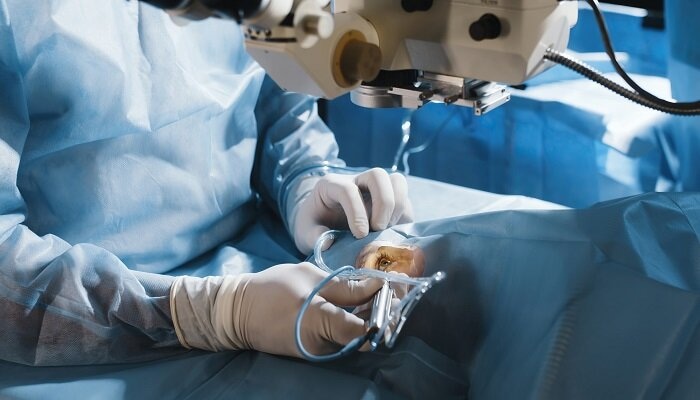Lasik surgery might seem like a tempting shortcut to ditching your glasses, but it’s important to weigh the risks before going under the laser. While it can improve your vision, there’s a chance it could also lead to complications. Whether you’re constantly losing your specs or simply curious, consider these key factors before deciding if LASIK eye surgery is right for you.
What Is LASIK Eye Surgery?
LASIK (Laser-Assisted In Situ Keratomileusis) is a laser-using vision correction procedure with the goal of reshaping the cornea, which is the clear dome at the front of your eye. What it does is it helps light focus properly on the retina, situated in the back of your eye, improving your vision and potentially eliminating the need for contacts or glasses.
During the surgery, a thin layer of the cornea is temporarily folded back. Then, a laser precisely reshapes the underlying tissue. The flap is then put back in place, where it heals naturally.
Much like other laser eye procedures, such as cataract surgery, LASIK is typically performed on an outpatient basis. Moreover, LASIK and cataract eye surgery boast relatively brief recovery times.
While LASIK procedures are successful for many people, it’s important to talk to an eye doctor to see if you’re a good candidate and to understand the potential risks and benefits.
Risks Of LASIK Eye Surgery
While LASIK eye surgery is generally safe and effective for most people, like any surgical procedure, it does carry some risks. Here are some of its potential dangers and side effects:
Dry Eyes
LASIK can mess with your eyes’ natural tear production, making them feel dry, irritated, and blurry. This dryness can be temporary (lasting a few months) or long-term, requiring treatments like eye drops.
Vision Issues
Glare, halos, double vision, and trouble seeing at night are common after laser eye surgery, especially at first. These usually improve as your eyes heal, but some people experience them long-term.
Correction Errors
Sometimes, LASIK doesn’t achieve the exact vision improvement you need. You might end up needing glasses or contacts anyway or needing another LASIK procedure.
Flap Problems
Creating the corneal flap during surgery can lead to complications. The flap might be incomplete, uneven, or move out of place. These issues can usually be fixed, but they can affect your vision and increase your risk of infection.
Vision Backsliding
Over time, your vision might worsen after LASIK. This can happen naturally due to changes in your eye or because the initial correction wasn’t perfect. You might need another procedure or glasses/contacts to see well again.
Eye Infections
Though rare, LASIK can cause infections if proper care isn’t followed. This can be serious and requires prompt treatment with antibiotics.
Corneal Weakening
In rare cases, LASIK can weaken your cornea, causing it to bulge and distort your vision. This is called corneal ectasia and can be serious. It’s important to catch it early for treatment.
Other Issues
Less common eye surgery risks after LASIK include inflammation, cells growing under the flap, scarring, and other irregularities on the cornea. These can affect your vision and might require additional treatment.
Factors That Increase Risks
Several factors can increase potential LASIK complications. These include:
Existing Eye Issues
If you have conditions like dry eye or a bulging cornea (keratoconus), LASIK might not be the best option. These can make the procedure unpredictable and increase complications afterward.
High Prescription
Strong nearsightedness, farsightedness, or astigmatism can also be tricky. Correcting them with LASIK might lead to under-correction, over-correction, or blurry vision.
Thin Corneas
Corneas that are thin or uneven are more likely to develop problems after LASIK, like corneal ectasia (a bulge) or flap complications. Other vision correction methods might be safer in this case.
Age
While LASIK is generally safe for adults, older folks might experience more dryness or slower healing. Age-related eye changes can also affect results.
Overall Health
Certain diseases like diabetes or autoimmune diseases can increase your risk of complications or slow healing after LASIK. A checkup with your doctor is important to see if this procedure is safe for you.
Medications
Some medications, like steroids, can also make LASIK riskier or hinder healing. Tell your eye doctor about all your medications to see if they’ll affect the surgery.
Surgeon Experience
A skilled and experienced LASIK surgeon is crucial. Look for someone who has done many procedures and uses advanced techniques to minimize complications.
Following Instructions
Not following your doctor’s instructions before and after surgery can raise your risk of problems. These include stopping contacts, avoiding certain medications, and attending follow-up appointments.
Takeaway
Overall, while LASIK eye surgery is considered safe and effective for the majority of patients, it’s essential for individuals considering the procedure to weigh the potential complications against the anticipated benefits. It’s also best to undergo a thorough preoperative evaluation with an experienced eye care professional to determine candidacy and minimize the likelihood of complications.
Additionally, carefully following all pre- and postoperative instructions can help reduce the risk of adverse outcomes and promote optimal healing and visual recovery.


















